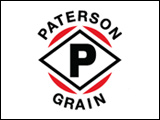I had the honour this past week to meet with Father Gregory Boyle, the founder of Homeboy Industries, the largest gang intervention and re-entry program in North America. Homeboy Industries got its humble beginnings in 1988 in the basement of the Dolores Mission parish in Los Angeles which Father Boyle was the pastor of.
Homeboys began as a jobs program for gang members. The tough part of L.A. was filled with gang violence. As Father Boyle tried to find jobs for gang members who were open to changing their lives, he found few employers who were willing to take a chance on hiring them. So he opened a bakery which created jobs and offered a skill to those trying to leave the gang lifestyle.
As word spread and gang violence continued to grow into the 1990’s, demand for help for those looking to leave gangs also grew. Homeboy Industries became an officially registered charity and began to expand its support. As Father Boyle encountered youth who had been in gangs who were kicked out of school, he tried to get them reenrolled only to find that schools were unwilling to accept them back. So he began to offer education opportunities though Homeboy Industries.
The demand for jobs resulted in an ever increasing line of businesses and today Homeboy Industries operates a silk screening operation, a dinner, a farmers market and a plumbing company. Additional services have also been added, including tattoo removal. This helps those willing to leave their gang identity behind remove the markings of a gang. Today, more than 745 tattoos are removed every month and it acts as a gateway service, often being the way that gang members are introduced to Homeboys and its supports.
With little in the way of government funding, Homeboys Industries has, over the past 25 years, been able to impact the lives of thousands of gang members helping them leave the gang life and undoubtedly saving many lives. But even with the successes, there are many young men and women who die as a result of the gang life and Father Boyle spoke of the many funerals he has attended over the years and the work yet to be done.
When asked if there was a common trait or factor in the thousands of gang members he has seen over the past many years he said that there is. He has yet to meet a person who entered a gang who was hopeful about their future. He described it as a lethal absence of hope.
After more than two decades and many awards and recognitions, Homeboy Industries is still about providing hope. And it is a message, and a lesson, that extends far beyond the inner city of Los Angeles.



